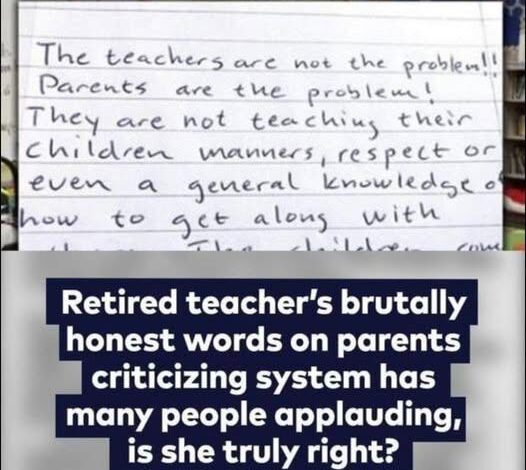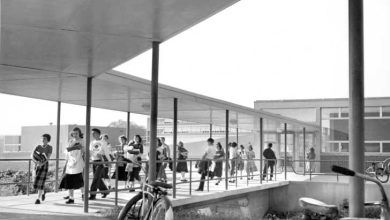Retired teacher’s brutally honest words to parents criticizing the system go viral

The state of education is a topic that ignites passionate debate, and rightfully so. The future of our society hinges on the quality of education our children receive. Everyone, from parents and educators to policymakers and community members, has a vested interest in ensuring its success. Recently, a retired teacher’s candid critique of the current educational landscape went viral, sparking a renewed discussion about the roles and responsibilities of parents and teachers in shaping the learning environment. This discussion, while sometimes contentious, is crucial for identifying areas of improvement and working collaboratively towards solutions.
Lisa Roberson, the retired educator whose open letter, originally published in the Augusta Chronicle in 2017, continues to resonate, didn’t mince words. Her letter, which quickly spread across social media, directly addressed the perceived shortcomings of parental involvement in their children’s education. This letter, shared widely, including a Facebook post by Tony Flowers, highlighted a perspective that often gets overlooked in broader discussions about educational reform. Roberson’s central argument was that while teachers are often the target of criticism, the root of many educational challenges lies with a lack of parental engagement. Her words, while strong, have undeniably struck a chord with many, prompting reflection and debate.
“As a retired teacher, I am sick of people who know nothing about public schools or have not been in a classroom recently deciding how to fix our education system,” Roberson’s letter began. This opening salvo immediately established her perspective as one grounded in experience and frustration. She continued, “The teachers are not the problem! Parents are the problem! They are not teaching their children manners, respect or even general knowledge of how to get along with others.” This bold assertion placed the onus squarely on parents, suggesting that the foundational skills necessary for successful learning are often lacking before children even enter the classroom.
Roberson’s critique went beyond simply decrying a lack of manners. She pointed to practical issues that directly impact a teacher’s ability to effectively teach. “The children come to school in shoes that cost more than the teacher’s entire outfit, but have no pencil or paper. Who provides them? The teachers often provide them out of their own pockets.” This example, while anecdotal, paints a vivid picture of the challenges teachers face, often having to supplement basic school supplies out of their own limited resources. It underscores the disparity between material possessions and the essential tools needed for learning.
The retired teacher didn’t stop at highlighting the problems; she also offered a framework for understanding the connection between parental involvement and student success. “When you look at schools that are “failing,” look at the parents and students. Do parents come to parent nights? Do they talk with teachers regularly? Do they make sure their children are prepared by having the necessary supplies? Do they make sure their children do their homework?” These questions serve as a checklist of sorts, prompting reflection on the level of parental engagement. Roberson’s point is that a school’s success is inextricably linked to the active participation of parents in their children’s education.
Roberson further emphasized the importance of communication and follow-through. “Do they have working telephone numbers? Do the students take notes in class? Do they do their homework? Do the students listen in class, or are they the sources of class disruptions?” These questions highlight the need for consistent communication between parents and teachers, as well as the importance of parents reinforcing the lessons learned in school at home. She argued that a lack of parental follow-up can undermine the efforts of even the most dedicated teachers.
“When you look at these factors, you will see that it is not schools that are failing but the parents. Teachers cannot do their jobs and the parents’ job. Until parents step up and do their job, nothing is going to get better!” This concluding statement, while provocative, encapsulates Roberson’s central argument. She believes that until parents take greater responsibility for their children’s education, the challenges facing the school system will persist.
Roberson’s letter, while controversial, raises crucial questions about the shared responsibility for educating children. It has ignited a necessary conversation about the balance between parental and teacher roles, and it serves as a call to action for increased parental involvement. The debate surrounding her words underscores the complexity of the issue and the need for a collaborative approach to improving our education system. While some may disagree with her assessment, her letter has undoubtedly brought to the forefront a perspective that deserves serious consideration. The question remains: how can we foster stronger partnerships between parents and teachers to create a more supportive and effective learning environment for all children?




